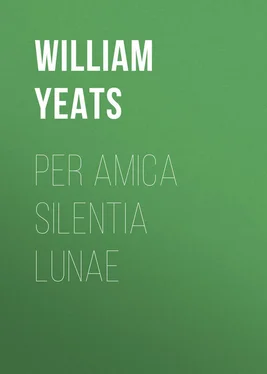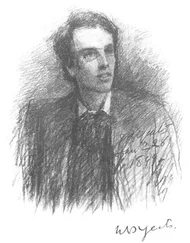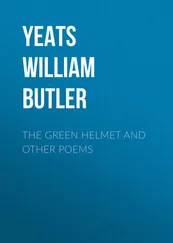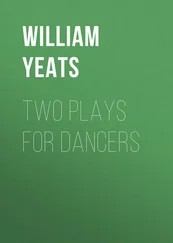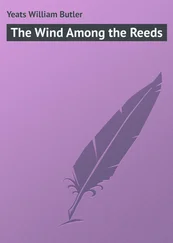William Yeats - Per Amica Silentia Lunae
Здесь есть возможность читать онлайн «William Yeats - Per Amica Silentia Lunae» — ознакомительный отрывок электронной книги совершенно бесплатно, а после прочтения отрывка купить полную версию. В некоторых случаях можно слушать аудио, скачать через торрент в формате fb2 и присутствует краткое содержание. ISBN: , Жанр: foreign_prose, на английском языке. Описание произведения, (предисловие) а так же отзывы посетителей доступны на портале библиотеки ЛибКат.
- Название:Per Amica Silentia Lunae
- Автор:
- Жанр:
- Год:неизвестен
- ISBN:http://www.gutenberg.org/ebooks/33338
- Рейтинг книги:5 / 5. Голосов: 1
-
Избранное:Добавить в избранное
- Отзывы:
-
Ваша оценка:
- 100
- 1
- 2
- 3
- 4
- 5
Per Amica Silentia Lunae: краткое содержание, описание и аннотация
Предлагаем к чтению аннотацию, описание, краткое содержание или предисловие (зависит от того, что написал сам автор книги «Per Amica Silentia Lunae»). Если вы не нашли необходимую информацию о книге — напишите в комментариях, мы постараемся отыскать её.
Per Amica Silentia Lunae — читать онлайн ознакомительный отрывок
Ниже представлен текст книги, разбитый по страницам. Система сохранения места последней прочитанной страницы, позволяет с удобством читать онлайн бесплатно книгу «Per Amica Silentia Lunae», без необходимости каждый раз заново искать на чём Вы остановились. Поставьте закладку, и сможете в любой момент перейти на страницу, на которой закончили чтение.
Интервал:
Закладка:
William Butler Yeats
Per Amica Silentia Lunae
My Dear “Maurice” – You will remember that afternoon in Calvados last summer when your black Persian “Minoulooshe,” who had walked behind us for a good mile, heard a wing flutter in a bramble-bush? For a long time we called her endearing names in vain. She seemed resolute to spend her night among the brambles. She had interrupted a conversation, often interrupted before, upon certain thoughts so long habitual that I may be permitted to call them my convictions. When I came back to London my mind ran again and again to those conversations and I could not rest till I had written out in this little book all that I had said or would have said. Read it some day when “Minoulooshe” is asleep.
W. B. YEATS.May 11, 1917.
EGO DOMINUS TUUS
On the grey sand beside the shallow stream,
Under your old wind-beaten tower, where still
A lamp burns on above the open book
That Michael Robartes left, you walk in the moon,
And, though you have passed the best of life, still trace,
Enthralled by the unconquerable delusion,
Magical shapes.
By the help of an image
I call to my own opposite, summon all
That I have handled least, least looked upon.
And I would find myself and not an image.
That is our modern hope, and by its light
We have lit upon the gentle, sensitive mind
And lost the old nonchalance of the hand;
Whether we have chosen chisel, pen, or brush,
We are but critics, or but half create,
Timid, entangled, empty, and abashed,
Lacking the countenance of our friends.
And yet,
The chief imagination of Christendom,
Dante Alighieri, so utterly found himself,
That he has made that hollow face of his
More plain to the mind’s eye than any face
But that of Christ.
And did he find himself,
Or was the hunger that had made it hollow
A hunger for the apple on the bough
Most out of reach? And is that spectral image
The man that Lapo and that Guido knew?
I think he fashioned from his opposite
An image that might have been a stony face,
Staring upon a Beduin’s horse-hair roof,
From doored and windowed cliff, or half upturned
Among the coarse grass and the camel dung.
He set his chisel to the hardest stone;
Being mocked by Guido for his lecherous life,
Derided and deriding, driven out
To climb that stair and eat that bitter bread,
He found the unpersuadable justice, he found
The most exalted lady loved by a man.
Yet surely there are men who have made their art
Out of no tragic war; lovers of life,
Impulsive men, that look for happiness,
And sing when they have found it.
No, not sing,
For those that love the world serve it in action,
Grow rich, popular, and full of influence;
And should they paint or write still is it action,
The struggle of the fly in marmalade.
The rhetorician would deceive his neighbours,
The sentimentalist himself; while art
Is but a vision of reality.
What portion in the world can the artist have,
Who has awakened from the common dream,
But dissipation and despair?
And yet,
No one denies to Keats love of the world,
Remember his deliberate happiness.
His art is happy, but who knows his mind?
I see a schoolboy, when I think of him,
With face and nose pressed to a sweetshop window,
For certainly he sank into his grave,
His senses and his heart unsatisfied;
And made – being poor, ailing and ignorant,
Shut out from all the luxury of the world,
The ill-bred son of a livery stable keeper —
Luxuriant song.
Why should you leave the lamp
Burning alone beside an open book,
And trace these characters upon the sand?
A style is found by sedentary toil,
And by the imitation of great masters.
Because I seek an image, not a book;
Those men that in their writings are most wise
Own nothing but their blind, stupefied hearts.
I call to the mysterious one who yet
Shall walk the wet sand by the water’s edge,
And look most like me, being indeed my double,
And prove of all imaginable things
The most unlike, being my anti-self,
And, standing by these characters, disclose
All that I seek; and whisper it as though
He were afraid the birds, who cry aloud
Their momentary cries before it is dawn,
Would carry it away to blasphemous men.
ANIMA HOMINIS
When I come home after meeting men who are strange to me, and sometimes even after talking to women, I go over all I have said in gloom and disappointment. Perhaps I have overstated everything from a desire to vex or startle, from hostility that is but fear; or all my natural thoughts have been drowned by an undisciplined sympathy. My fellow-diners have hardly seemed of mixed humanity, and how should I keep my head among images of good and evil, crude allegories.
But when I shut my door and light the candle, I invite a Marmorean Muse, an art, where no thought or emotion has come to mind because another man has thought or felt something different, for now there must be no reaction, action only, and the world must move my heart but to the heart’s discovery of itself, and I begin to dream of eyelids that do not quiver before the bayonet: all my thoughts have ease and joy, I am all virtue and confidence. When I come to put in rhyme what I have found it will be a hard toil, but for a moment I believe I have found myself and not my anti-self. It is only the shrinking from toil perhaps that convinces me that I have been no more myself than is the cat the medicinal grass it is eating in the garden.
How could I have mistaken for myself an heroic condition that from early boyhood has made me superstitious? That which comes as complete, as minutely organised, as are those elaborate, brightly lighted buildings and sceneries appearing in a moment, as I lie between sleeping and waking, must come from above me and beyond me. At times I remember that place in Dante where he sees in his chamber the “Lord of Terrible Aspect,” and how, seeming “to rejoice inwardly that it was a marvel to see, speaking, he said, many things among the which I could understand but few, and of these this: ego dominus tuus”; or should the conditions come, not as it were in a gesture – as the image of a man – but in some fine landscape, it is of Boehme, maybe, that I think, and of that country where we “eternally solace ourselves in the excellent beautiful flourishing of all manner of flowers and forms, both trees and plants, and all kinds of fruit.”
When I consider the minds of my friends, among artists and emotional writers, I discover a like contrast. I have sometimes told one close friend that her only fault is a habit of harsh judgment with those who have not her sympathy, and she has written comedies where the wickedest people seem but bold children. She does not know why she has created that world where no one is ever judged, a high celebration of indulgence, but to me it seems that her ideal of beauty is the compensating dream of a nature wearied out by over-much judgment. I know a famous actress who in private life is like the captain of some buccaneer ship holding his crew to good behaviour at the mouth of a blunderbuss, and upon the stage she excels in the representation of women who stir to pity and to desire because they need our protection, and is most adorable as one of those young queens imagined by Maeterlinck who have so little will, so little self, that they are like shadows sighing at the edge of the world. When I last saw her in her own house she lived in a torrent of words and movements, she could not listen, and all about her upon the walls were women drawn by Burne-Jones in his latest period. She had invited me in the hope that I would defend those women, who were always listening, and are as necessary to her as a contemplative Buddha to a Japanese Samurai, against a French critic who would persuade her to take into her heart in their stead a Post-Impressionist picture of a fat, ruddy, nude woman lying upon a Turkey carpet.
Читать дальшеИнтервал:
Закладка:
Похожие книги на «Per Amica Silentia Lunae»
Представляем Вашему вниманию похожие книги на «Per Amica Silentia Lunae» списком для выбора. Мы отобрали схожую по названию и смыслу литературу в надежде предоставить читателям больше вариантов отыскать новые, интересные, ещё непрочитанные произведения.
Обсуждение, отзывы о книге «Per Amica Silentia Lunae» и просто собственные мнения читателей. Оставьте ваши комментарии, напишите, что Вы думаете о произведении, его смысле или главных героях. Укажите что конкретно понравилось, а что нет, и почему Вы так считаете.
